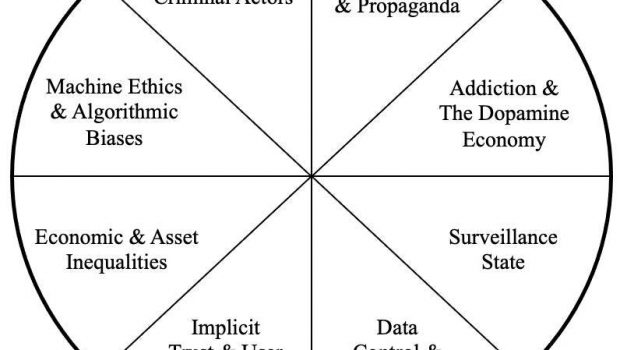Technology Ethics. How To Tame The Digital Beast.
Frenemies
Digital technology is often our friend, but just as often our enemy. “Fake news,” “disinformation,” “deep fakes,” “assaults on privacy,” “algorithmic biases,” and “surveillance capitalism” – among other threats – challenge the ethics of the majority of companies, their employees and the “users” who participate in the digital economy.
The threats especially challenge the companies that make money from fake news, disinformation, deep fakes, threats, algorithmic bias and surveillance capitalism – and there are lots of them. There are also companies who repeatedly “torture” the truth for profit. Investment banks, prominent consultancies and accounting firms are fined all the time. Some of the fines are for misdeeds that challenge us on so many levels.
While many companies struggle with the need to show profits to their investors while staying on the ethical straight-and-narrow, opportunities to generate enormous profit from less-than-ethical behavior (Facebook’s 2021 revenue was $81B and its net profit was a staggering $30B) are everywhere. They’re also seductive: it can be profitable to be bad. Polluting the ethical waters is the lack of regulation and governance around these opportunities.
Challenges?
Too many to list.
Regulations?
Too few to find.
Accountability?
Tiny percentages of revenue.
Now what?
Charting the Challenges
Digital technology creates a variety of ethical challenges we should acknowledge, especially as technology consumes more and more of our personal and professional lives. Is there an appetite to explore the range of challenges and how we might reduce the number and impact they might have through a variety of “regulatory” and corporate “governance” steps?
Ethical OS, a company that researches ethical challenges created by technology, summarizes the ethical challenges digital technology enables in the figure below. Ethical OS also provides an extensive checklist for assessing ethical risks. This checklist, expressed in questions, was used to measure the breadth and depth of technology-enabled ethical challenges here.
Ethical OS Areas
Four matrices appear below.
Note that there are no dark green options — no really good news.
Aspirational Matrices
Ethical OS suggests we assess the level of feasibility and impact that ethical solutions might have. There are four matrices discussed here that speak to:
- Disinformation, privacy, surveillance and all things data
- AI and machine learning
- Access, readiness and haves-versus-have-nots
- Hateful and criminal actors
The first matrix, which builds upon the excellent Ethical OS structure, suggests that there are a number of steps we might take to address disinformation, privacy, surveillance and all things data. Take a look. Is it reasonable to expect anti-trust regulation to fall short, that the US will not pass GDPR-like regulations, that content blocking and removal is almost as unlikely and that individual and corporate self-governance is easy but less than impactful? You get the idea.
Regulatory & Surveillance Options for All Things Data
Next comes approaches around the ethics of access, readiness and haves-versus-have-nots. This one inevitably turns political. Note that net neutrality, subsidies, Internet-for-All and the Internet-as-a-Utility options are front and center to increase access, improve readiness and close some of the inequality gaps.
Regulatory & Governance Options for Access, Readiness & Have's-Vs-Have-Nots
The next matrix focuses on the ethical challenges around AI and machine learning. Happily there are two light green possibilities here, though one identifies what the EU has done as the guide for the US. The other suggests that AI and machine learning can assist with DEI. While serious regulatory steps are unlikely – as impactful as they might be – there’s promise in explainable AI (XAI).
Regulatory & Governance Options Regarding AI & Machine Learning
The last matrix addresses hateful and criminal actors. The Europeans are way ahead of the US in this area. Check out the options in the figure below.
Regulatory & Governance Options Regarding Hateful & Criminal Actors
Conclusions
There’s lots at stake here. Without some level of regulatory and governance intervention, ethical challenges will grow.
We also know that:
- The US lags well behind the developed world in regulatory policy that addresses digital ethics.
- The US Congress has been loath to meaningfully regulate digital platforms, regardless of ethical breaches. US lawmakers are committed to US corporations and their profit engines anchored in digital transaction processing which through lobbying and other financial influence constrains digital regulation.
- Self-regulation and self-governance have failed to reduce or manage ethical challenges.
- There are clear regulatory policy and governance guidelines the US could follow to improve its ethical record.
Here’s wishing everyone luck.








Gloss